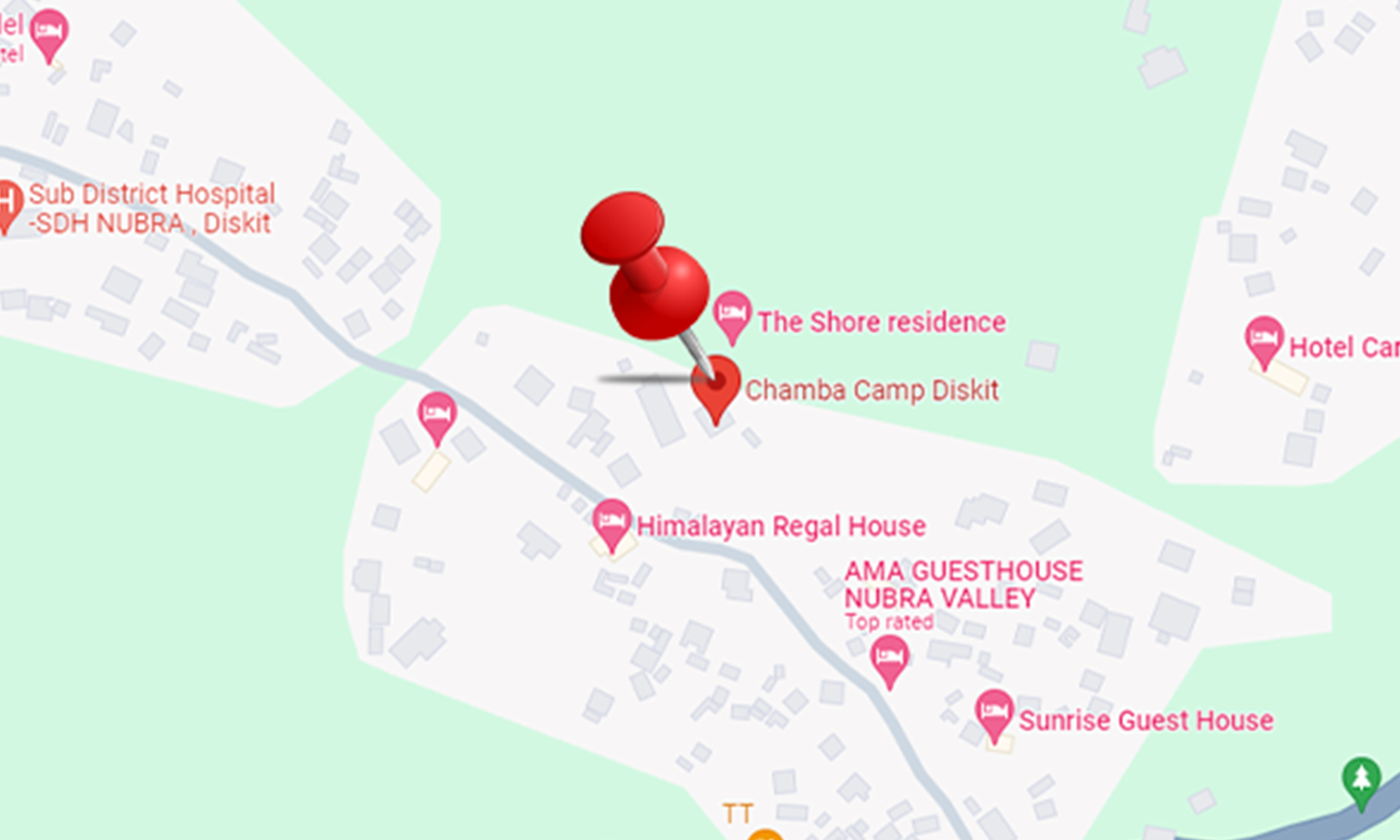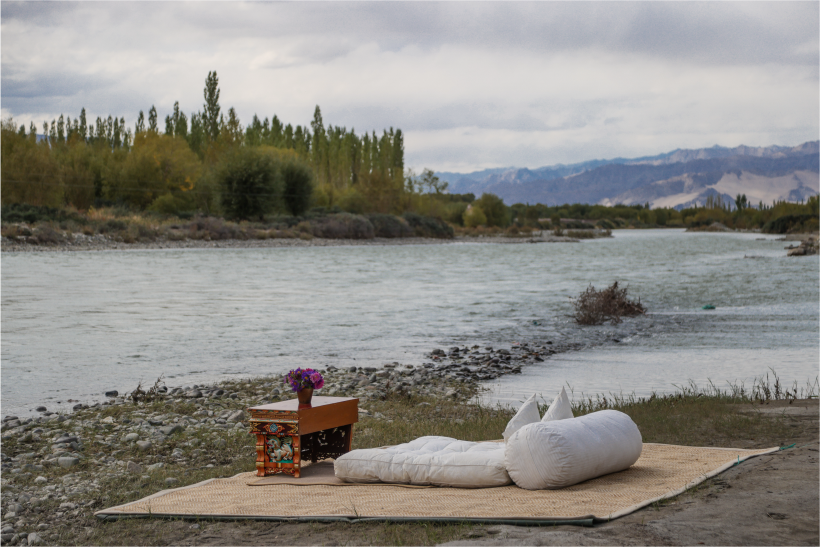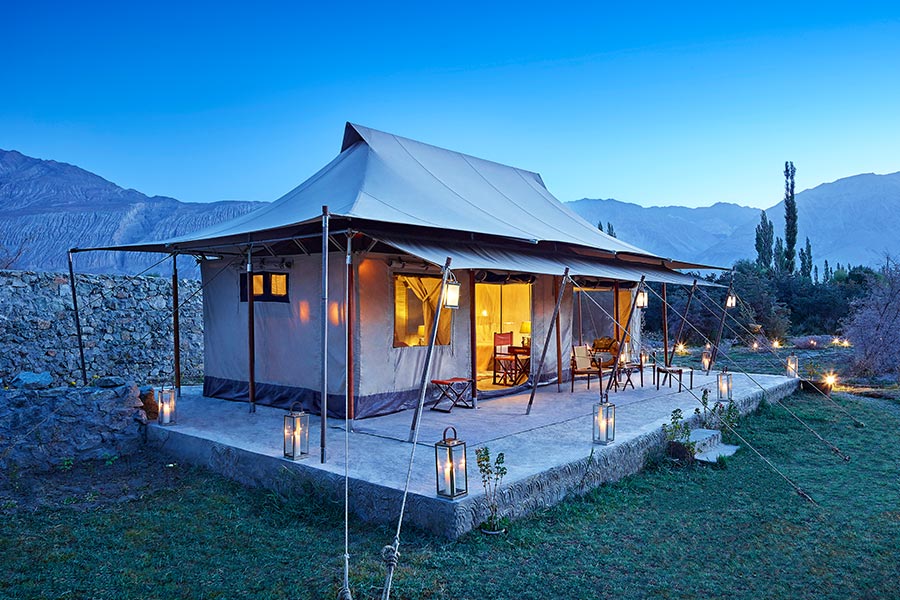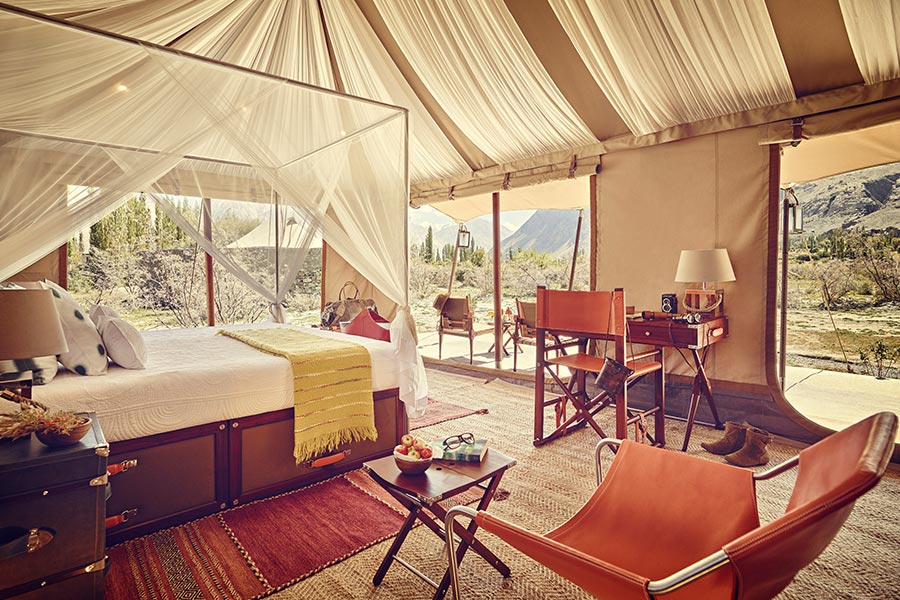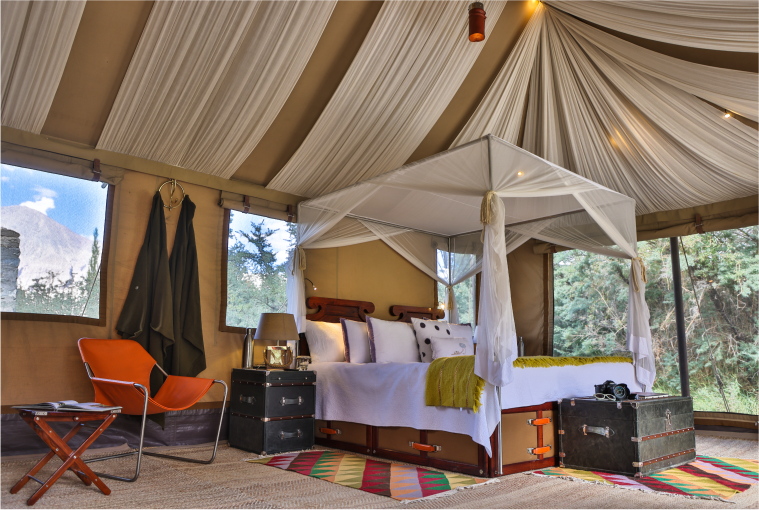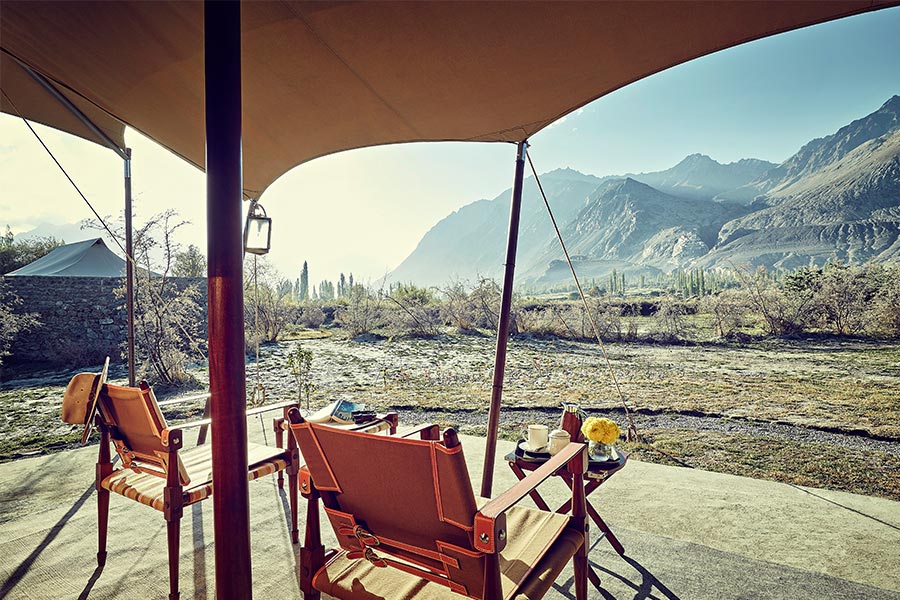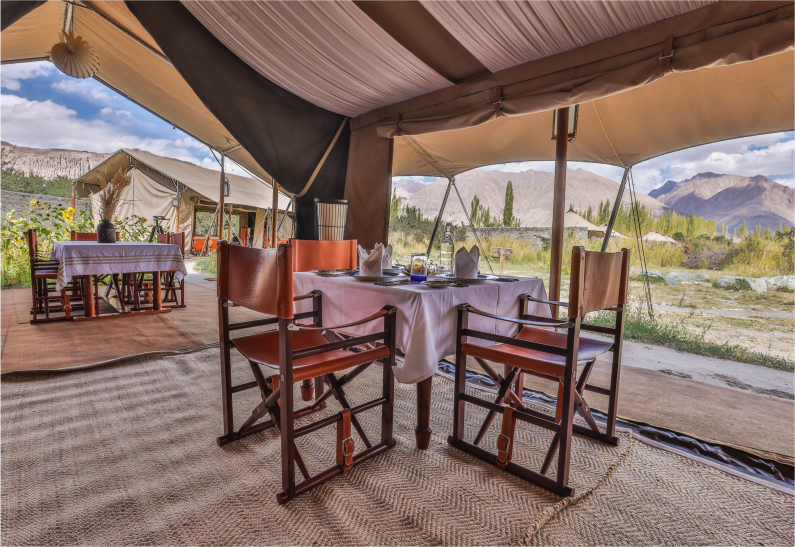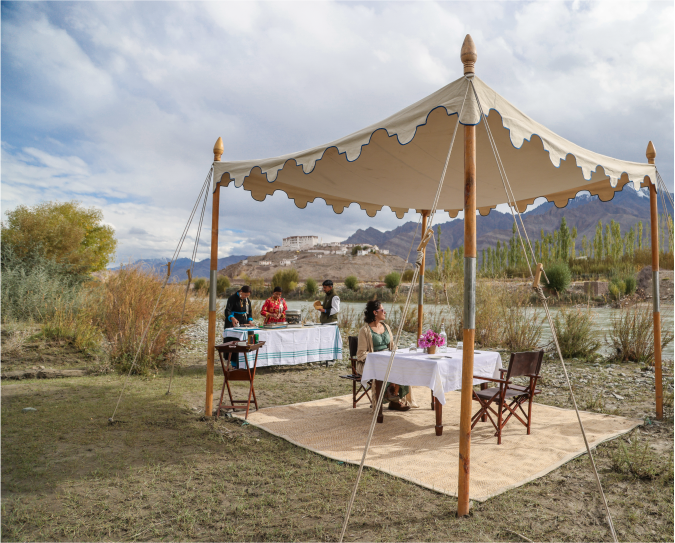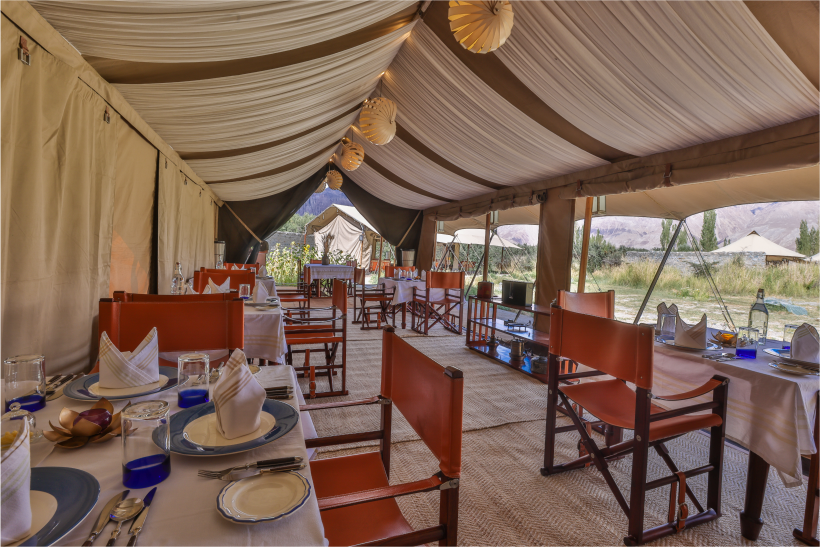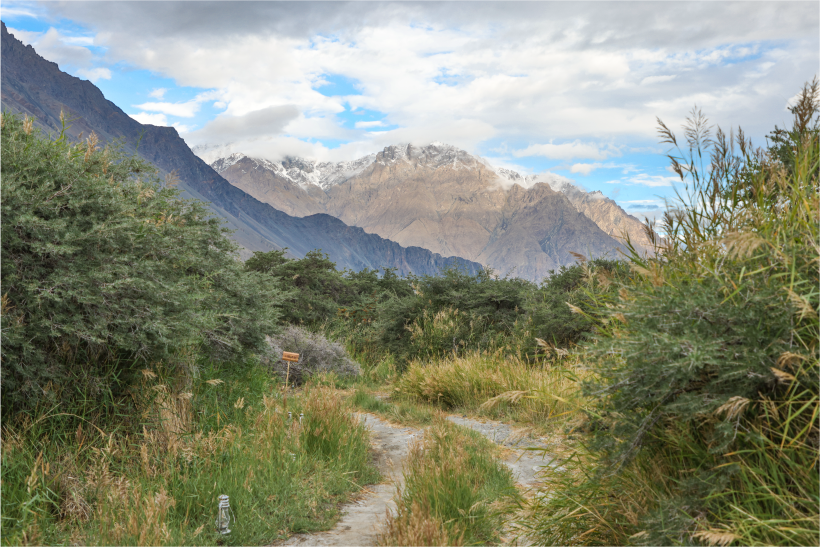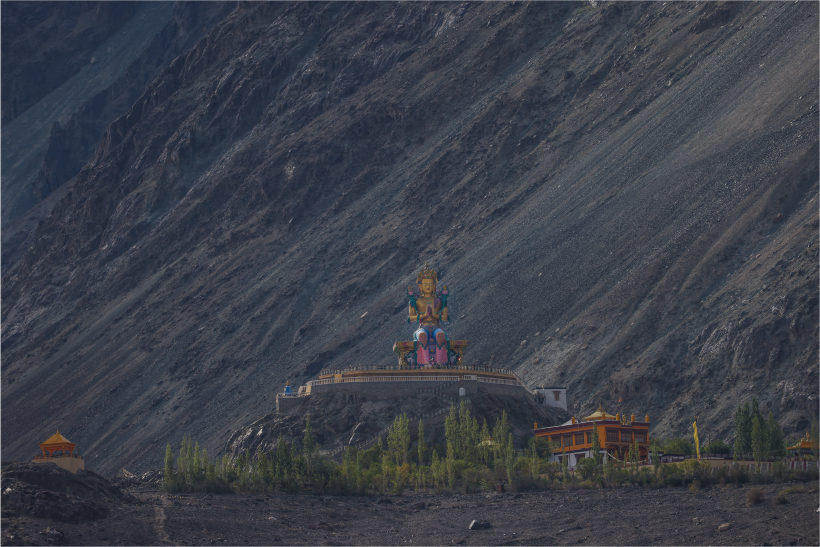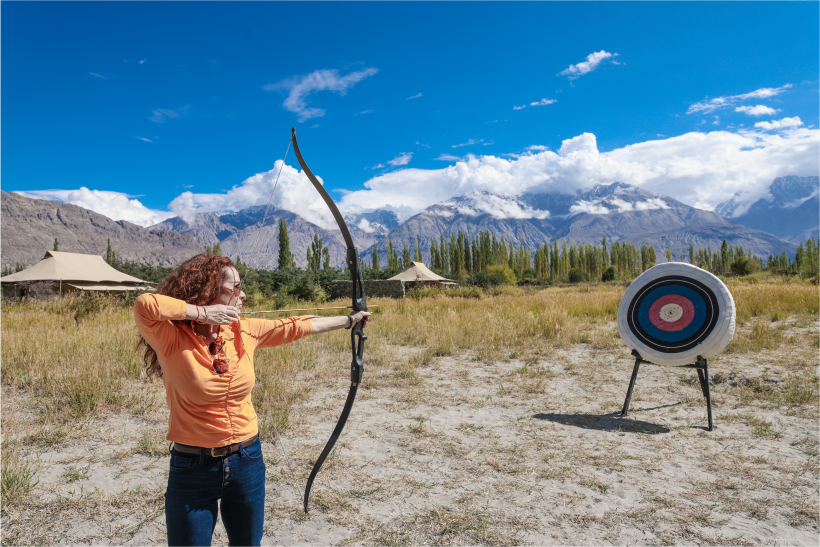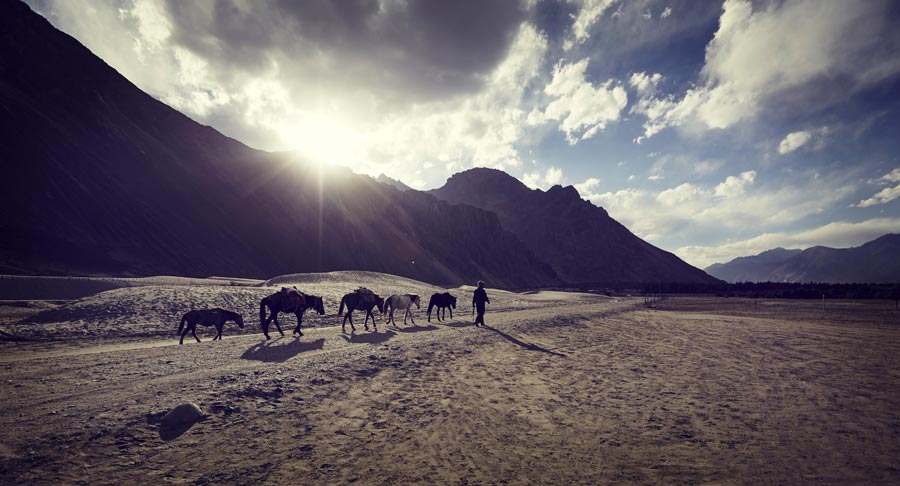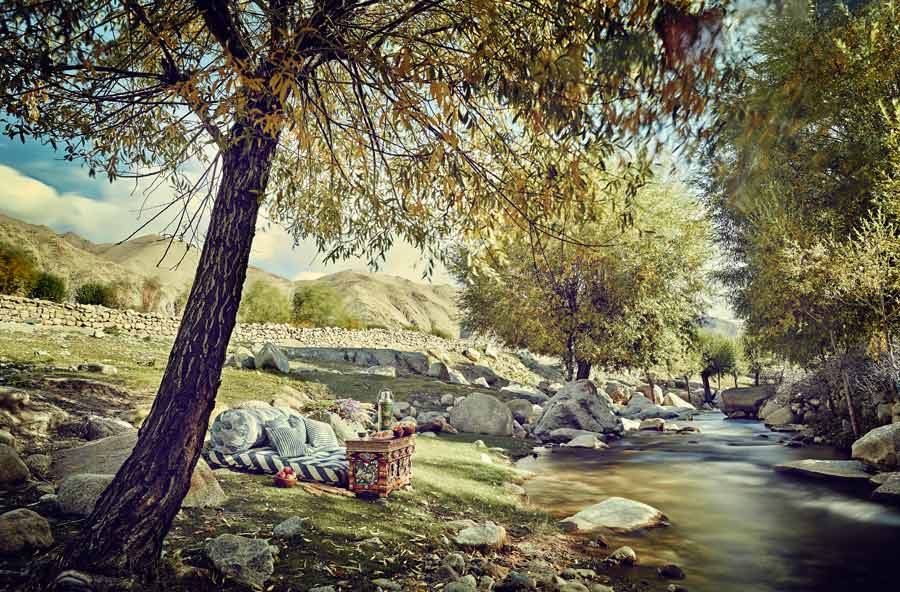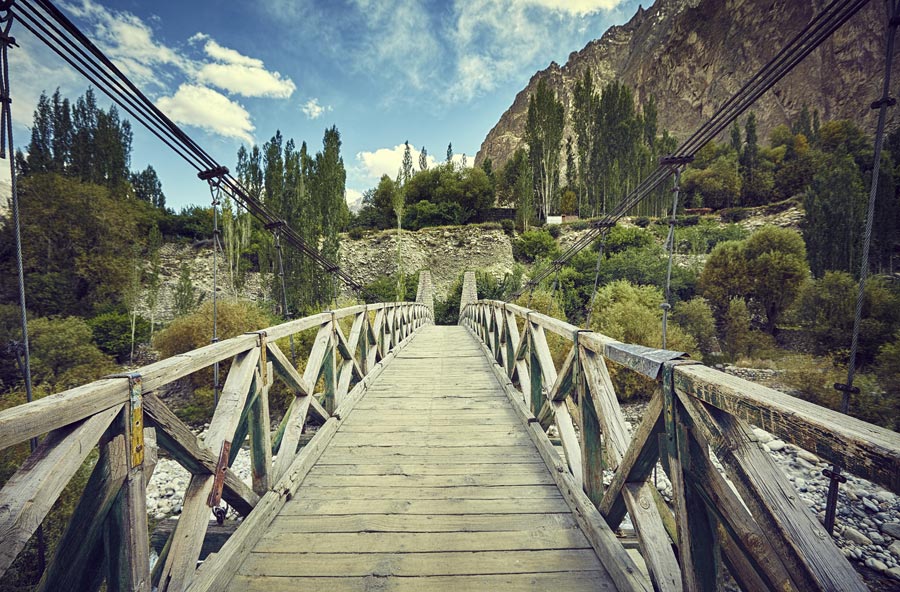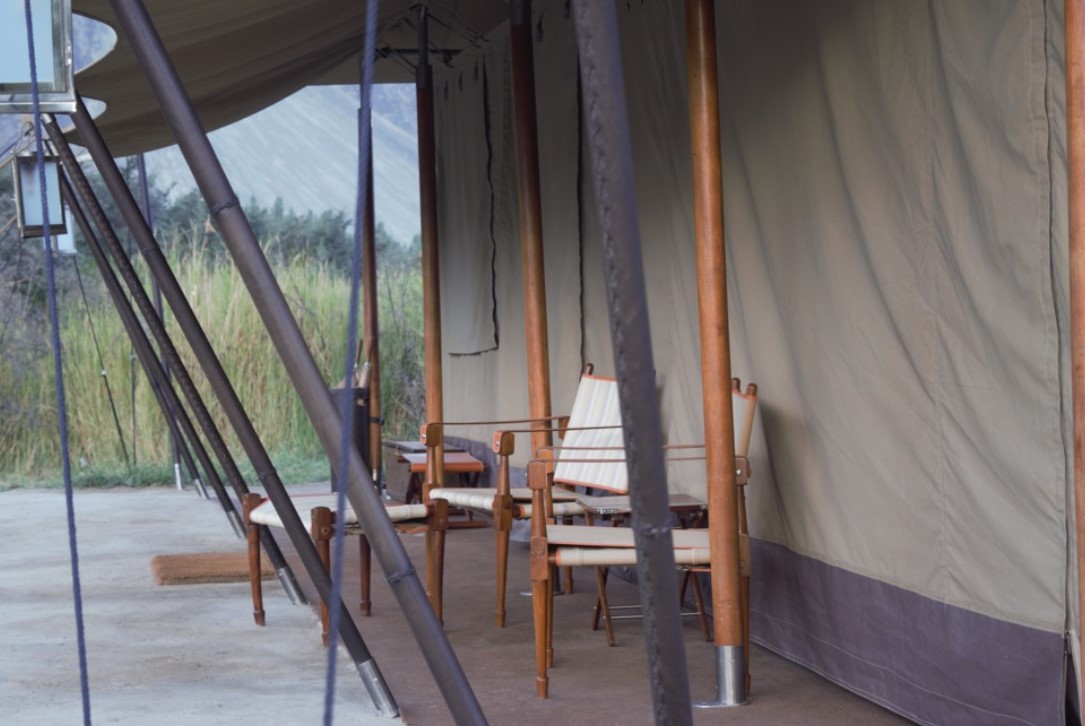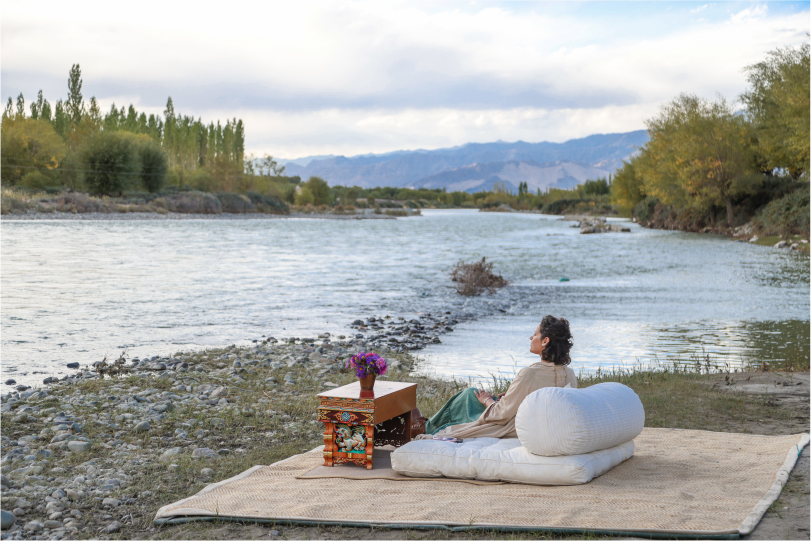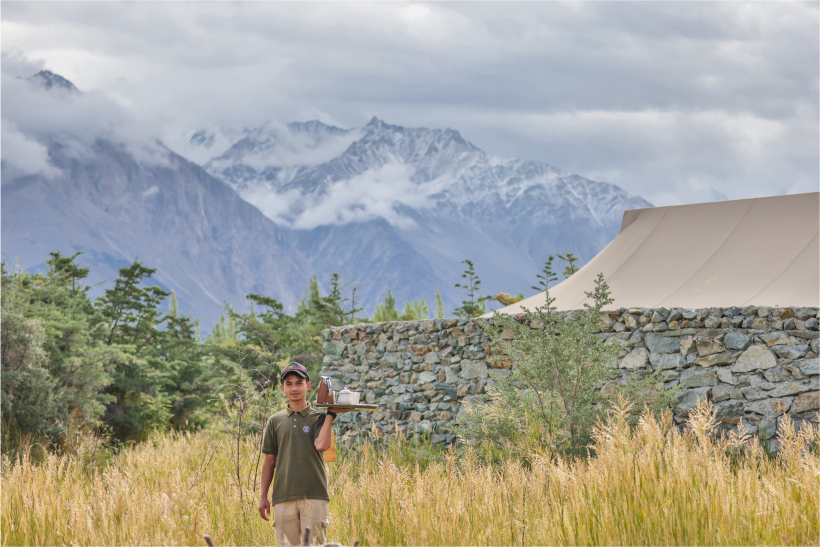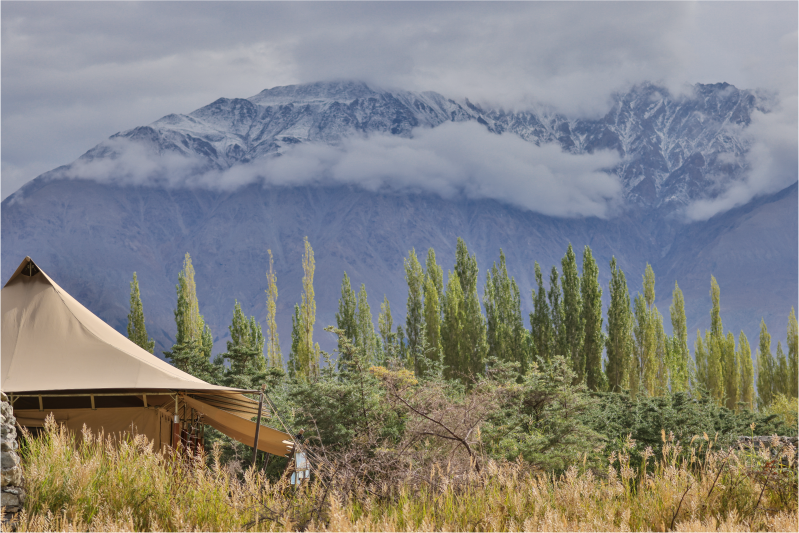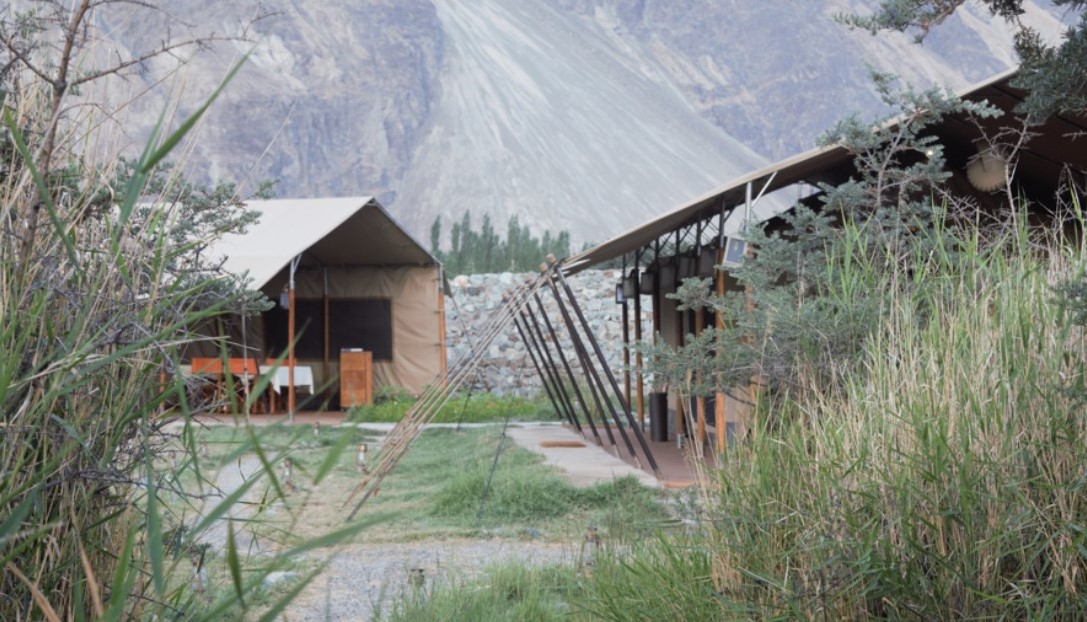The high-altitude cold desert valley of Nubra is unlike any other. Bare brown mountains located in the Himalayan rain shadow region are interspersed with sand dunes that bask in abundant sunlight and snow, untouched by rain. The blue waters of the snaking Shyok River cuts through the surreal landscape adding to the drama. A scatter of quaint villages and farms with herds of grazing goats, sheep, or yaks, against the backdrop of the mountains adds to the charm.
Nestled in the heart of Nubra Valley, located north of Leh Valley, the super-luxury camp at Diskit is an oasis of canvas delight under the canopy of snow-capped mountains. The camp enjoys a 360° panoramic view of the mountains while a natural flowing stream cuts through the campsite. Guests can discover the dramatic landscape and the charms of village life in the Nubra Valley with specialized guided excursions featuring village explorations, birding, and hikes.

